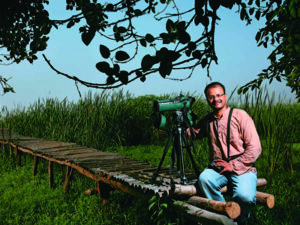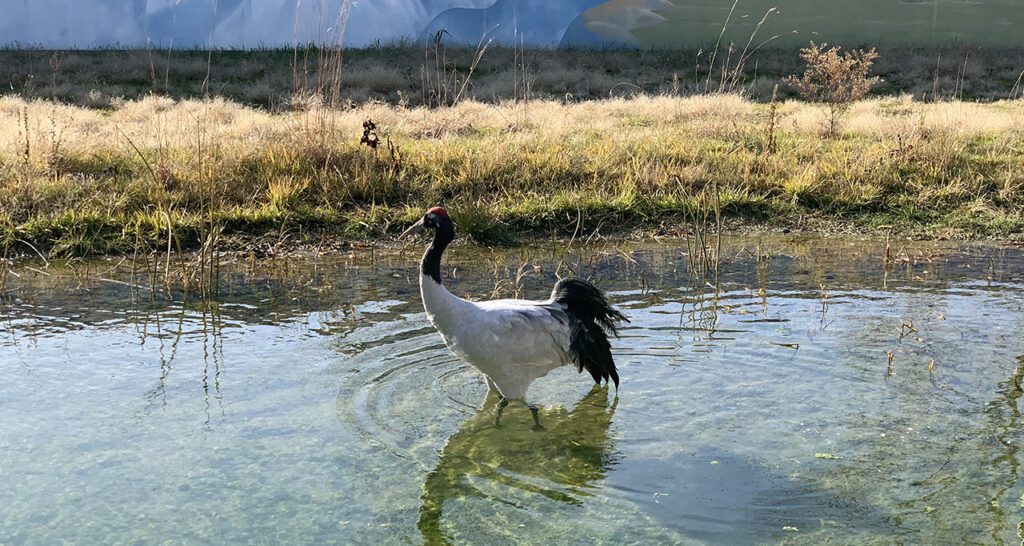ICF’s K.S. Gopi Sundar Makes Top 25 Smartest Indians List

Media Contact: Kate Fitzwilliams, ICF Marketing/PR Specialist, 608-356-9462 ext. 147
Taking the world’s largest known Sarus Crane population under your wing can’t be easy, but K.S. Gopi Sundar, wildlife conservationist, did just that. – Outlook India, Neha Bhatt (Link to Full Article)
Outlook India, among the five most read English national magazines in India, has featured 25 smartest Indians from various backgrounds and professions as their cover story this week. Included on the list is K.S. Gopi Sundar, International Crane Foundation (ICF) SarusScape Program Director (learn more about Sundar’s work in India).
Since 1998, Sundar has worked in an unprotected agricultural landscape that is unique in hosting high bird species diversity alongside intensive farming. Among the species is the largest known Sarus Crane population in the world. This is the tallest crane species standing at six feet tall, with a wingspan of eight feet. As Program Director for SarusScape, Sundar focuses on the landscapes where these Sarus Cranes reside. Farmlands are not traditionally thought of as being important for wildlife, and Sundar’s work is helping bring attention to an unexplored landscape through the lens of the cranes. He and his team hope to achieve continued preservation and restoration of the cultural values and wetlands that are part of agricultural landscapes and that have aided crane survival for centuries. Later this month, results from the recently-concluded winter wetland survey in 7 districts of Uttar Pradesh, will be highlighted on ICF’s website. Through animation and photographs, ICF and Sundar are focusing on creative ways to share in-depth scientific results with the general public.
Sundar’s PhD dissertation work at the University of Minnesota demonstrated that landscapes with long histories of agriculture and high human populations do not necessarily lead to areas with very low species diversity. Traditional farming methods coupled with wetlands legally protected as common lands have been a win-win for humans and many bird species for centuries. However, retaining habitat amid the growing need for agricultural land remains a priority. This work, and ongoing discussions with state and federal governments, and conservation organizations, provides focus for ICF’s immediate and longer-term work in the region.
When asked about making Outlook India’s Top 25, Sundar said: “Let’s hope this helps bring wetlands and cranes to the discussion table of the policy makers.”
To learn more about ICF and its global mission to conserve cranes and the ecosystems, watersheds and flyways on which they depend visit www.savingcranes.org.


